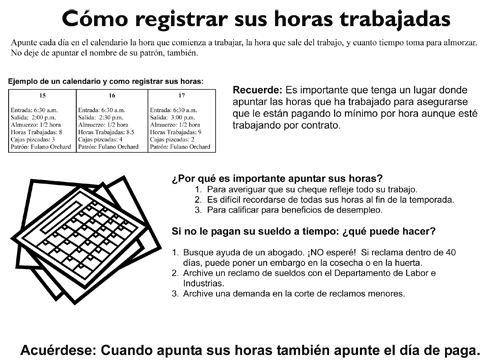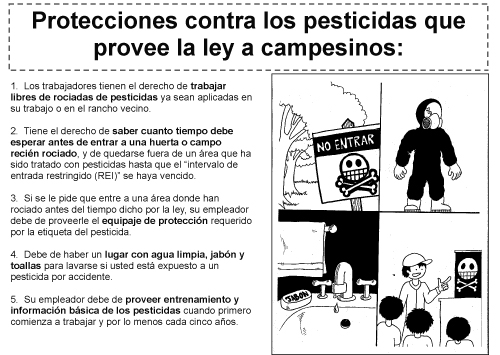Quincy Community Health Center
Quincy, WA | http://www.mlchc.org/quincy.html
Contact: Mary Jo Ybarra-Vega, Outreach Coordinator
Many patients of community health centers have multiple needs in addition to their heath needs. Collaborations with social service agencies and other community-based organizations have been a great way for health centers to maximize on existing resources in the community and effectively mitigate the needs of their patients. For farmworker patients with needs such as immigration, workers compensation, housing, and other related issues; legal assistance organizations can help health centers address and integrate legal issues into patient care and wellness. Quincy Community Health Center a satellite of Moses Lake Community Health Center in Quincy, Washington has a long-standing relationship with their local legal aid organization, Northwest Justice Project (NWJP) to address the health and legal needs of their shared priority population. One of the successes of Quincy’s relationship with NWJP has been the innovative integration of NW Justice’s health and legal resource calendar into outreach activities.
Each year, NW Justice collaborates with local health organizations to create a resource calendar that includes health and legal information. The calendars feature prevalent health issues, legal information and advice, and other relevant information for farmworkers. Each month highlights a topic, provides education and awareness around that topic, recommendations, and action steps for farmworkers. Some of the topics have included: how to use the calendar to record hours worked, recognizing and preventing heat illnesses, information about minimum wage, diabetes management, the difference between notario and notaries, and pesticide education. The calendar is available to partnering organizations of NW Justice for promotion and distribution. However, promotores of Quincy’s outreach program have found the calendars to be an effective outreach tool.

Quincy’s promotores began using the calendars to help schedule appointments and keep health information organized for their largely low-literacy, farmworker patient population. The promotores found that drawing representations of appointment types instead of writing it out was particularly effective for their low-literacy patients. For example, if a patient has an eye appointment, outreach staff draw an eye on the date of their appointment with their appointment time. This practice made it simple and easy for patients to understand the purpose of their appointment and their appointment date and time. Quincy distributed and promoted the use of the calendar through outreach events, camp visits, and during appointment setting. The calendars were useful in helping many patients record future doctor appointments, track hours worked, and other health- or legal-related information. Because a large portion of Quincy’s farmworker population is migratory, Quincy found that many of the farmworkers kept their calendars and continued to use them even after they moved. To help clinics outside of the state use the calendar to obtain patient medical records or provide follow-up health care, Quincy’s outreach staff began including basic patient information on the calendar such as primary care provider and contact information for the health center.
In addition to innovative calendar use and distribution, Quincy has provided photographs to feature in the calendar through theirPhotoVoice project[1]. The photographs are taken by youth in the community and include images of fruit pickers, pesticide exposure, and other occupational health and general health-related images. These images were familiar and relatable for Quincy’s priority population and the population for which the calendar was created.

For health centers or outreach programs interested in integrating legal issues into their outreach programs or supporting the work of their legal aid, Quincy recommends building a relationship with a local legal aid organization with a shared interest and demonstrated commitment to addressing the needs of the priority population.
Quincy Community Health Center a part of Moses Lake Community Health Center, a 330g-funded health center. Quincy’s Outreach Program supports underserved populations in the community of Quincy with a focus on the migrant and seasonal farmworker population. The Outreach Program includes an Outreach Coordinator, two paid Promotores de Salud/Community Health Workers, and many volunteer Promotores de Salud. The Outreach Program provides visits to farmworker homes, labor camps, schools, and other places where farmworkers live and work to provide health education and enabling services. To learn more about Quincy’s Outreach Program, visit their website: http://www.mlchc.org/quincy.html.
